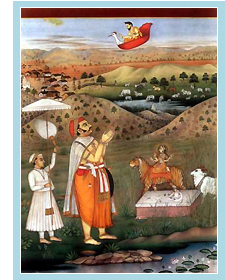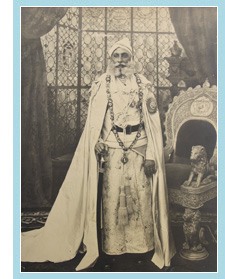

House of Mewar - Case Study
 The House of Mewar’s association with Indian School of Business, Hyderabad, began in February 2008 when Shriji Arvind Singh Mewar attended the first ISB Asian Invitational Conference on Family Business Management in Hyderabad as a delegate.
The theme of the conference was ‘Sustaining Growth in Family Business’.
The House of Mewar’s association with Indian School of Business, Hyderabad, began in February 2008 when Shriji Arvind Singh Mewar attended the first ISB Asian Invitational Conference on Family Business Management in Hyderabad as a delegate.
The theme of the conference was ‘Sustaining Growth in Family Business’.
Shriji invited Prof John L Ward, Clinical Professor of Family Enterprises at Kellogg School of Management of the Kellogg School of Management, Chicago, and Prof K Ramachandran, Thomas Schmidheiny Chair Professor of Family Business and Wealth Management at the Indian School of Business, Hyderabad, to prepare in-depth case studies on the House of Mewar for the benefit of not only management students and researchers worldwide, but also to develop an evolving document – a manual, as he said – for the present and future generations of the House of Mewar. To read Shriji's letter of invitation to Prof John L Ward click here.
Summary
House of Mewar case study
 Across the world only a limited number of families have survived beyond a few generations, distinctly retaining their identity in terms of vision and values, and evolved as institutions. The royal family of Mewar is unique in that it has successfully sustained itself beyond 76 generations. This research case on the House of Mewar has identified factors such as trusteeship and service to society as the core strengths that have contributed to the creation of this institution. Although, the trusteeship responsibility of administration of the state has been transferred to the government, the family has ensured that its moral responsibility to preserve the history and traditions and enriching the society has remained high.
Across the world only a limited number of families have survived beyond a few generations, distinctly retaining their identity in terms of vision and values, and evolved as institutions. The royal family of Mewar is unique in that it has successfully sustained itself beyond 76 generations. This research case on the House of Mewar has identified factors such as trusteeship and service to society as the core strengths that have contributed to the creation of this institution. Although, the trusteeship responsibility of administration of the state has been transferred to the government, the family has ensured that its moral responsibility to preserve the history and traditions and enriching the society has remained high.
It has not only preserved the ancestral properties with history of centuries behind, but also brightened the image of Udaipur as a tourist centre. In the process it has created employment opportunities for a large number of people. Shriji Arvind Singh Mewar’s painstaking efforts to build on what he inherited under difficult times, that too when he was the one ‘chosen to rule’ shows the leadership qualities required to practice trusteeship values. His children have demonstrated commitment and capabilities to preserve the traditions and responsibilities entrusted on them. To read more click here
